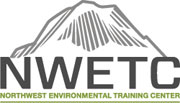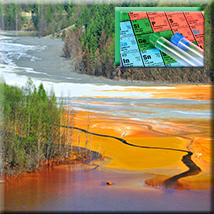8:30 – 10:00 am Part 1: Introduction to emerging contaminants. In the first part of the workshop, we will explore what is meant by the term “emerging contaminants”. We will compare and contrast emerging contaminants of concern in surface water, soil, and groundwater.
10:00 – 10:10 am Break
10:10 – 12:00 pm Part 2: Agency response to emerging contaminants. In this part, we will discuss how agencies such as the U.S. EPA and DoD are working to develop approaches for dealing with emerging contaminants. We will review recent meetings on emerging contaminants and indicate specific contaminants that are of most concern to various agencies.
12:00 – 1:00 pm Lunch
1:00 – 2:00 pm Part 3: Profiles of emerging contaminants. We will review sources of data on emerging contaminants including EPA’s Technical Fact Sheets on individual contaminants and information from other programs such as DoD’s Chemical and Material Risk Management Program.
2:10 – 2:20 pm Break
2:20 – 3:20 pm Part 4: Chemical and physical properties of emerging contaminants. The chemical and physical properties of emerging contaminants will be discussed along with how these compare to more traditional contaminants.
3:20 – 3:30 pm Break
3:30 – 4:30 pm Part 5: Case studies of emerging contaminants. The last part of the workshop will present several case studies of emerging contaminants to illustrate concepts of fate and transport in soil and groundwater systems along with remediation approaches.
Note: For most of the workshop, the focus is on contaminants from a soil and groundwater, remediation perspective (e.g., 1,4-‐dioxane, fluorinated organic compounds, TCE, and nanomaterials), rather than a surface water perspective (e.g., pharmaceuticals and personal care products).








